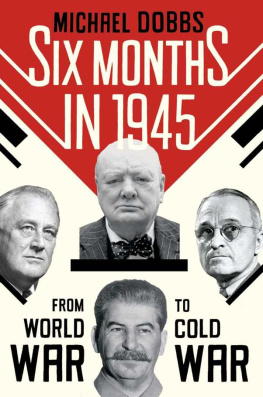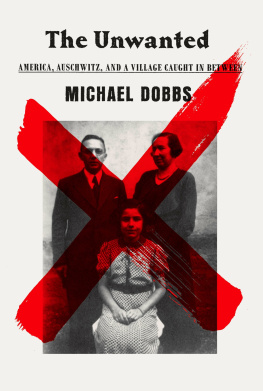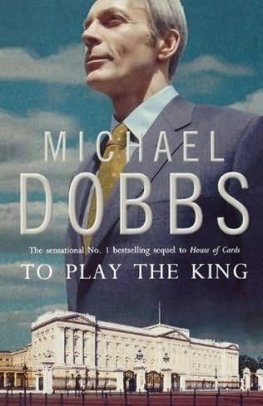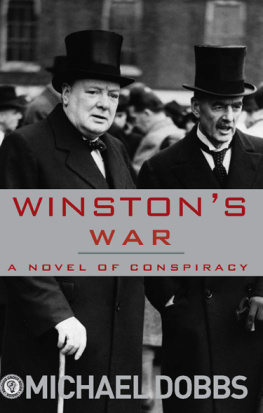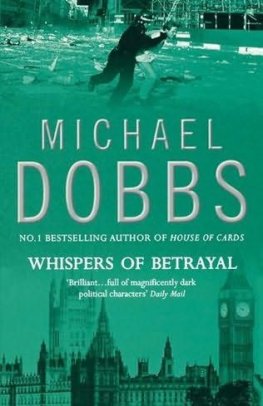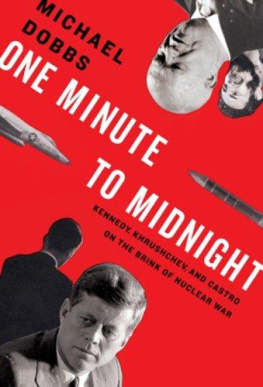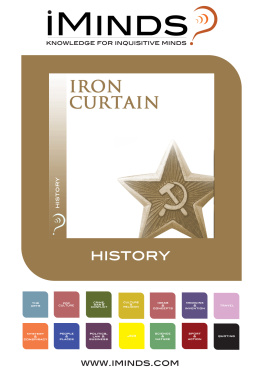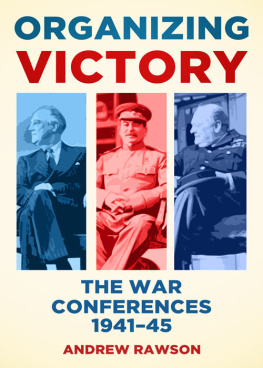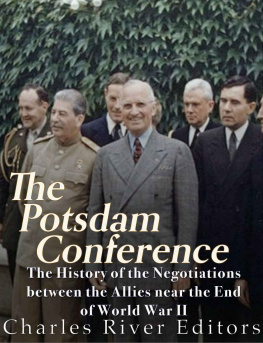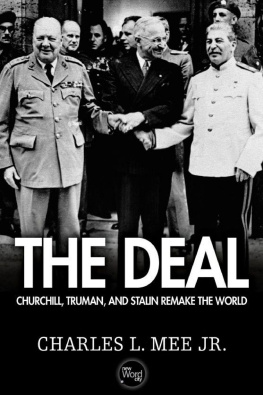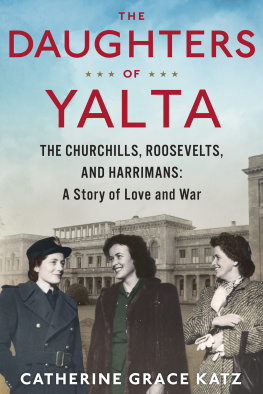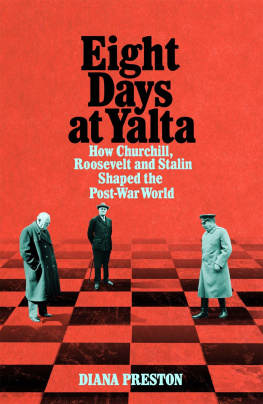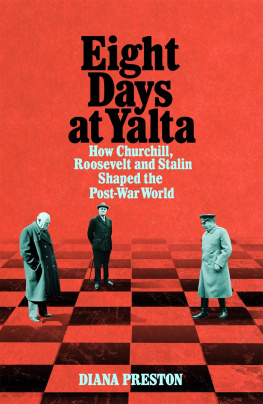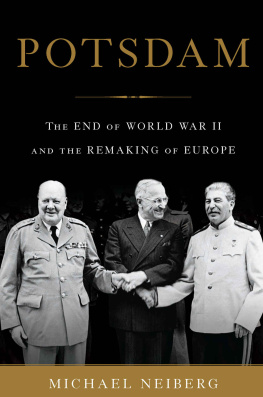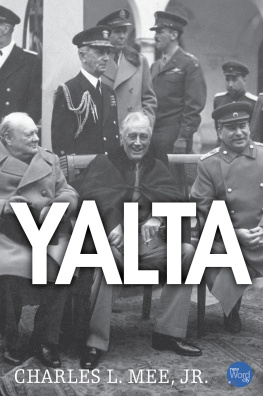Contents
About the Book
From the author of the bestselling One Minute to Midnight, a riveting account of the pivotal six-month period spanning the end of World War II, the dawn of the nuclear age, and the beginning of the Cold War.
When Roosevelt, Churchill and Stalin met in Yalta in February 1945, Hitlers armies were on the run and victory was imminent. The Big Three wanted to draft a blueprint for a lasting peace but instead set the stage for a forty-four-year division of Europe into Soviet and Western spheres of influence. After fighting side by side for nearly four years, their political alliance was rapidly fracturing. By the time the leaders met again in Potsdam in July 1945, Russia and America were squabbling over the future of Germany, and Churchill was warning about an iron curtain being drawn down over the Continent.
These six months witnessed some of the most dramatic moments of the twentieth century: the cataclysmic battle for Berlin, the death of Franklin Roosevelt, the discovery of the Nazi concentration camps, Churchills electoral defeat, and the dropping of atomic bombc on Japan. While their armies linked up in the heart of Europe, the political leaders manoeuvred for leverage: Stalin using his nations wartime sacrifices to claim spoils, Churchill doing his best to halt Britains waning influence, FDR trying to charm Stalin, and Truman determined to stand up to an increasingly assertive Soviet superpower.
Six Months in 1945 brilliantly captures this momentous historical turning point, chronicling the geopolitical twists behind the drawing of the iron curtain, while illuminating the aims and personalities of larger-than-life political giants. It is a vividly rendered story of individual and national interests in fierce competition at a seminal moment in history.
About the Author
Michael Dobbs was born in Belfast, Ireland, and educated at the University of York, with fellowships at Princeton and Harvard. He spent much of his career as a reporter for the Washington Post, where he was a foreign correspondent covering the collapse of communism. His Down with Big Brother: The Fall of the Soviet Empire was a finalist for the 1997 PEN award for nonfiction. He lives in Bethesda, Maryland.
Also by Michael Dobbs:
One Minute to Midnight: Kennedy, Khrushchev, and Castro on the Brink of Nuclear War
Saboteurs: The Nazi Raid on America
Madeleine Albright: A Twentieth-century Odyssey
Down with Big Brother: The Fall of the Soviet Empire
For the grandson of
Joseph
And the great-grandson of
Samuel
Few historical turning points are as rich in drama as the six months between February and August 1945, a period bookended by the Big Three conference in Yalta and the bombing of Hiroshima. America and Russia emerged as the two most powerful nations in the world; Nazi Germany and imperial Japan were vanquished; the British Empire teetered on the verge of economic collapse. A president died; a fhrer committed suicide; a prime minister who had rallied his people through the darkest days of their history was defeated in a free election. Coups and revolutions became commonplace; millions of people were buried in unmarked graves; ancient cities were reduced to piles of ruins. A Red tsar redrew the map of Europe, erecting a metaphorical iron curtain between East and West. Meeting in the capital of the defeated Third Reich, the victors squabbled over the spoils of victory. The end of World War II led inexorably to the start of the Cold War.
The six months from Yalta to Hiroshima form a hinge between two very different warsand two very different worlds. They connect the age of artillery with the age of the atomic bomb, the death throes of empire with the birth pangs of superpowers. They also mark the fateful encounter in the heart of Europe between the armies of two great nations, ostensibly allied but guided by opposite ideological principles. More than a century earlier, Alexis de Tocqueville had predicted that Americans and Russians would sweep all other nations aside. The principal instrument of the former is freedom; of the latter, servitude, the French seer wrote in 1835. Their starting point is different and their courses are not the same; yet each of them seems marked out by the will of Heaven to sway the destinies of half the globe. This is the story of the peoplepresidents and commissars, generals and foot soldiers, victors and vanquishedwho fulfilled the will of Heaven.
Maps
. FDR in the Crimea
. Into the Reich (JanuaryFebruary 1945)
. Poland Border Changes
. Linkup (Journeys to the Elbe)
. An Iron Curtain Is Drawn Down (May 1945)
. Stalin and the Middle East
. Berlin (July 1945)
. Stalin and the Far East
Chronology
February 4 | Yalta conference opens (to February 11). |
February 1315 | Dresden bombed. |
February 27 | Vyshinsky organizes Communist coup in Romania. |
March 7 | U.S. Army crosses the Rhine at Remagen. |
April 12 | Roosevelt dies, succeeded by Truman. |
April 23 | Truman warns Molotov to keep promises on Poland. |
April 25 | Founding conference of United Nations; Americans and Russians link up on the Elbe. |
April 30 | Hitler commits suicide. |
May 2 | Fall of Berlin to the Red Army. |
May 8 | Germany surrenders. |
May 26 | Truman envoys meet with Churchill and Stalin. |
June 1 | Truman decides to use atomic bomb against Japan. |
June 18 | Polish opposition leaders go on trial in Moscow. |
June 24 | Victory parade in Moscow. |
July 4 | U.S. forces occupy west Berlin. |
July 16 | Potsdam conference opens (to August 2); first atomic test. |
July 26 | Churchill resigns. |
August 6 | Atomic bomb dropped on Hiroshima. |
Note on Names
The end of World War II produced numerous boundary changes and accompanying name changes in both Europe and Asia. The end of the Cold War and the breakup of the Soviet Union resulted in yet more name changes. Adopting the latest, politically correct (or incorrect, depending on your point of view) names for towns and villages is a recipe for confusion.
To simplify matters, I have used Anglicized names for cities and towns when they are widely familiar to English-speaking readers. Thus I write about Moscow and Warsaw, not Moskva and Warszawa. In cases where political upheavals or boundary revisions have resulted in name changes, I have used the names employed by Roosevelt, Truman, and Churchill in 1945, e.g., Breslau not Wroclaw, Stalingrad not Volgograd, Port Arthur not Lushun.
For the convenience of readers, here is a list of geographic names used in the book with modern-day alternatives.
Baerwalde | Mieszkowice |
Breslau | Wrocaw |
Dairen | Dalian |
Next page
